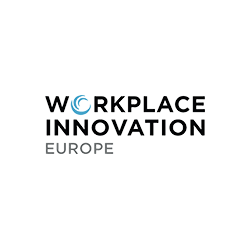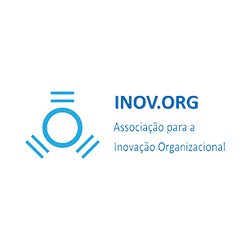TIME COMMITMENT
1 month
FORMAT
live
online
VACANCIES
24
REGIME
post-work and work hours
LANGUAGES
PT/EN
TIME COMMITMENT
1 month
FORMAT
live
online
VACANCIES
24
REGIME
post-work and work hours
LANGUAGES
pt/en
COURSE HIGHLIGHTS
The course enables you to design a strategy control system that allows you to understand where the business strategy has failed and in which team or project you should intervene
The exercise is developed independently of the organisation chart, making it resistant to personal change, maintaining alignment with the agile and systemic teams and business strategy
The strategy control system will thus complement the management control, which focuses on explaining deviations from the objectives’ goals
- Overview
- Schedule
- Research
- Coordination
- Enrolments
The course enables the design of a business strategy control system based on an organisational framework, adopting an agile approach oriented to autonomous teams.
This system acquires a fundamental importance in a competitive context with high levels of uncertainty, as it supports the decision making in a quick, factual and in a consensual way, assuring a clear and actual strategic guidance.
The course has a practical approach, based on the realization and discussion of a project, to be done by each team of the participants, making it easy to deploy the acquired knowledge in a real business context.
This course gives the opportunity to learn how to design an innovative business strategy control system, that complements the management control one in the understanding of the objectives’ deviations.
It teaches a method to align the individual objectives with the business ones.
The system includes the preparation of a project portfolio aligned with the business strategy and autonomous teams.
It adopts a practical approach based on a work group project, in the context of a real institution selected by the participants.
The course includes a practical introduction to workplace innovation, led by Peter Totterdill, co-founder of EUWIN (European Workplace Innovation Network) and Workplace Innovation Europe. This approach teaches how to reinforce leadership, organisational innovation, motivation, idea generation and well-being.
The course will reinforce the skills of the professionals that work in the themes of strategy, management control, innovation, quality, knowledge management, risk management, project management, organisational development and continuous improvement.
The training aims to enable participants to design and implement a strategy control system in an organizational innovation context.
At the end of the course, participants should acquire skills to:
- Translate the business strategy into objectives, indicators and goals at the various organisational levels.
- Design a systemic organizational architecture of autonomous teams.
- Adjust the organisational chart to clarify organisational boundaries of responsibility.
- Define a portfolio of projects in alignment with the business strategy.
- Align individual with organizational objectives.
- Create conditions that foster organisational innovation, promoting empowerment, the autonomy of teams, the unification of all management systems, motivation and well-being of the collaborators.
Option C | Tuesdays and Fridays from 4pm to 5.30pm (UTC Time)
Live classes | Zoom
A certificate of approval or attendance is awarded to those who participate in at least 75% of the hours of the course.
[non-degree courses]
[non-degree courses]
- Organizational innovation and Workplace Innovation
- Methodology for Strategic Modeling of the organization and strategy deployment
- Strategy clarification in terms of strategic and tactical objectives and autonomous teams
- Organizational architecture of the institution and of an autonomous team
- Deployment of the strategic and tactical objectives of the organization through the autonomous teams, integrating the organisational architecture.
- Project portfolio aligned by business strategy
- Adjustments to the organisational chart, for a clear definition of responsibilities
- Business Strategy control system implementation plan
- The concepts and techniques to be applied will be presented, based on a case study.
- Participants apply the method to their project (outside contact hours)
- Discussion with each group to clarify doubts and support in carrying out the project stage
- Presentation of the project of each group and its discussion in a workshop.
- At the end of each stage, each group submits its project for evaluation, being its correction made within each group.
- Organisational Innovation
- Strategy Clarification
- Organizational Architecture
- Deployment of strategic and tactical objectives and indicators
- Project Portfolio
- Extension of the approach to the whole organisation
- Guest Workshop
Duration: 3 months
Time commitment: 27h
- Organizational Innovation and Workplace Innovation
- Methodology for Strategic Modeling of the organization and Operationalization of the strategy a
- Clarification of the strategy in terms of strategic and tactical objectives and autonomous teams
- Organizational architecture of the institution and an autonomous team
- Deployment of the strategic and tactical objectives of the organization through autonomous teams, integrating the organizational architecture.
- Project portfolio aligned by strategy
- Adjustments to the organic structure, for a clear definition of responsibilities
- Implementation plan for the strategy control system
The course will be based on project orientation, where participants, in working groups (with a maximum of 4 elements), apply the techniques in the context of real organizations and discuss the solutions.
At the beginning, an introduction is made to Workplace Innovation, exercising a method of diagnosing institutions, as a basis for an organizational development plan. This session will be facilitated by Peter Totterdill, co-creator of the Workplace Innovation approach.
Each group selects an organization as the real context for carrying out the project.
In each of the 5 stages of the project:
- Concepts and techniques to be applied based on a case study will be presented (synchronous face-to-face or remote contact)
- Participants apply the method to their project (outside contact hours)
- Discussion with each group to clarify doubts and support in carrying out the project stage (synchronous remote contact).
- Presentation of the project of each group and its discussion in workshop (in person or remote synchronous)
- At the end of each stage, each group submits its project for evaluation, and its correction is made with each group (Synchronous Remote Contact)
To close the course, there will be a workshop to discuss the impact of the approach and techniques learned on the global management system of an organization. A member of the Board of a company will participate in this workshop, as a guest, to share their experience within the scope of the course’s theme.
- Organizational Innovation
- Strategy clarification
- Organizational Architecture
- Deployment of strategic and tactical objectives and indicators
- Project Portfolio
- Extending the approach to the entire organization
- Guest Workshop
Duration: 3 months
Time commitment: 27h
REMIT – Research on Economics, Management and Information Technologies, aims to produce theoretical and applied knowledge that enables a greater understanding of economic, business, territorial and technological dynamics and trends in the contemporary world and their socio-economic effects, contributing to the design, implementation and evaluation of organizational strategies and public policies.
REMIT has experienced significant growth since its creation in 2017, evident in the number of researchers, publications and competitively funded projects.
The positive evolution of REMIT was recognized, at the end of 2019, by the FCT evaluation panel through the attribution of a GOOD rating in the last evaluation exercise. This evaluation translated into the obtaining of 512.000,00€ of funding, in the basic and programmatic components, as well as the awarding of two PhD scholarships.
Ongoing projects
IEcPBI/ Interactive Ecosystem for the Internationalisation of Portuguese Companies
(among others)
DEM/ Department of Economics and Management
Strategic Control and Organisational Innovation
(fa.ceio@upt.pt)
DEM/ Department of Economics and Management
Strategic Control and Organisational Innovation
(fa.ceio@upt.pt)
ENROLMENT
+ 4 INSTALLMENTS
650€
ENROLMENT
250€ (1)
4 INSTALLMENTS
100€ (2)
(1) payment at registration time
(2) payment at the beginning of each month
ENROLMENT
+ 4 INSTALLMENTS
650€
ENROLMENT
250€ (1)
4 INSTALLMENTS
100€* (2)
(2) payment at the beginning of each month
Participants should have a higher academic degree or relevant experience in management and organisation.
Depending on their level of experience they will be enrolled in the respective courses: Management, Senior or Junior.
ENROLMENT
+ 4 INSTALLMENTS
650€
ENROLMENT
250€ (1)
4 INSTALLMENTS
100€ (2)
(1) payment at registration time
(2) payment at the beginning of each month
ENROLMENT
+ 4 INSTALLMENTS
650€
ENROLMENT
250€ (1)
4 INSTALLMENTS
100€* (2)
(2) payment at the beginning of each month
Participants should have a higher academic degree or relevant experience in management and organisation.
Depending on their level of experience they will be enrolled in the respective courses: Management, Senior or Junior.




